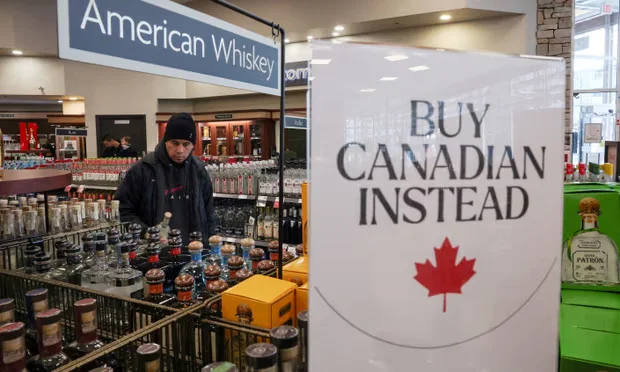⏲️ Estimated reading time: 3 min
Denmark’s Trade Dispute with the US – Supermarkets Take a Stand Against Trump. In Denmark, several supermarkets now label European products with a star as a subtle protest against Donald Trump’s trade policies. This initiative sparks debate in Germany, where many support a similar move.
Danish Supermarkets Mark European Goods in Trade Protest
In response to ongoing tensions between Europe and the United States, several Danish supermarket chains Føtex, Netto, and Bilka have begun marking European-made products with a small star on their price tags. The move is both a practical tool for consumers and a quiet rebuke of former US President Donald Trump’s aggressive trade stance.

Though the CEO of parent company Salling Group, Anders Hagh, did not explicitly mention Trump when announcing the initiative on LinkedIn, the action follows a national debate in Denmark over potential boycotts of American products. The dispute was fueled in part by Trump’s prior trade threats and controversial remarks about acquiring Greenland.
German Consumers Favor Similar Labels
According to a recent YouGov survey, 77% of German respondents support a similar labeling approach for European goods. Of those, 47% fully support the idea, while 30% are somewhat in favor. Only 11% opposed it outright. The results reflect growing consumer interest in transparency and regional loyalty during international trade conflicts.
Kai Hudetz of IFH Cologne comments: “People are angry and confused. Regional origin has long been a sales driver in supermarkets. This dispute only amplifies that trend.”
German Retailers Unlikely to Follow For Now
Despite strong public support, major German retailers are not planning to introduce similar labeling. A Rewe Group spokesperson stated that boycotts and special labeling could unintentionally harm innocent producers. They emphasized that origin information is already printed on most packaging.
Edeka echoed this sentiment, citing a lack of significant customer demand. Meanwhile, Lidl highlighted its wide range of regional and German products, with no plans to revise its labeling.
Implementation Challenges
Privately, many retailers admit that labeling European products would be complex due to the diverse mix of ingredients and production locations in most items. Additionally, some American brands are produced in Europe, blurring the lines even further.
Rising Support for US Product Boycotts
Another YouGov survey revealed that 53% of German consumers are unwilling to buy American products as a protest against US trade policies. Nearly half of respondents cited political reasons, indicating a desire to send a message through their shopping choices.
As trade tensions continue to flare, these subtle acts of resistance like Denmark’s star labels may become increasingly symbolic on a continent wary of economic aggression.
🏷️ Tags: Denmark, US trade war, supermarkets, Trump, European products, consumer behavior, food labeling, Germany, boycott, international trade
Only logged-in users can submit reports.
Discover more from HelpZone
Subscribe to get the latest posts sent to your email.

